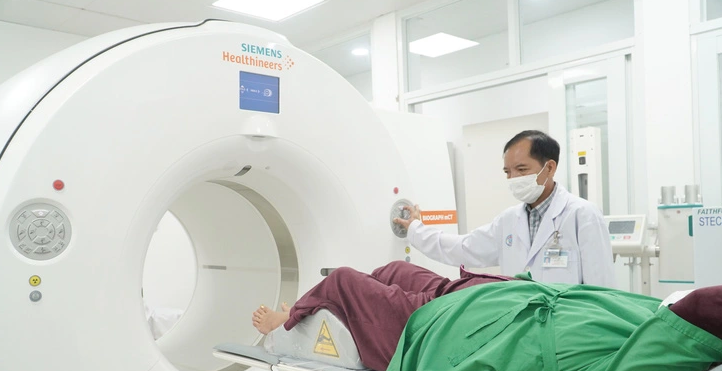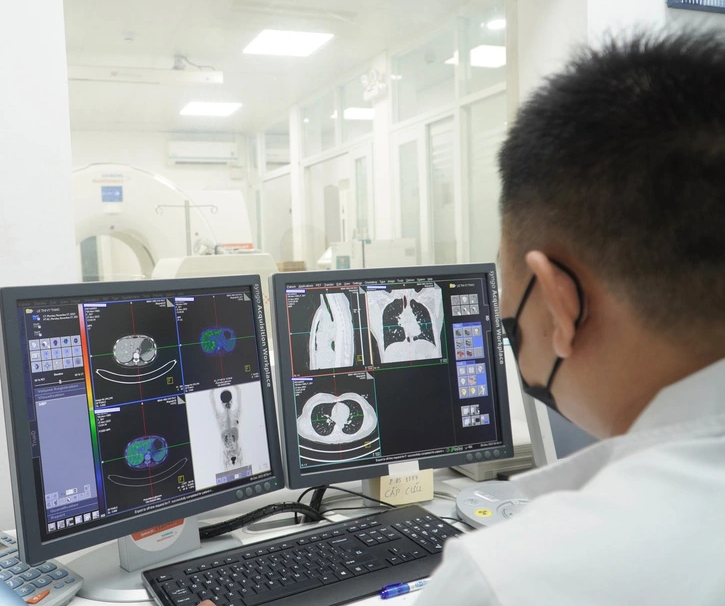Cho Ray Hospital in Ho Chi Minh City has successfully prepared radiopharmaceuticals for use in PET/CT scans to diagnose prostate cancer and neuroendocrine tumors, which will help patients who previously had to travel abroad for these tests.
In its announcement of the achievement on Wednesday, the hospital affirmed that the Gallium-68 PSMA (Ga-68 PSMA) and Gallium-68 Dotatate (Ga-68 Dotatate), which were made for the first time in Vietnam last month, are effective for use in PET/CT scans to detect signs of the aforementioned cancer and tumors.
Positron emission tomography (PET) is a technique that measures physiological function by looking at blood flow, metabolism, neurotransmitters, and radiolabelled drugs, while computed tomography (CT) is a noninvasive medical examination or procedure that uses specialized X-ray equipment to produce cross-sectional images of the body, according to the U.S.’s National Institutes of Health.
After a long time of studies, the nuclear medicine department of Cho Ray Hospital successfully prepared the two PET-CT drugs on November 7, 2023 and then put them into trial use, said Dr. Nguyen Xuan Canh, head of the department.
During nearly one month of trial, the hospital used Ga-68 PSMA for PET/CT scans in 12 cases of prostate cancer and Ga-68 Dotatate for the same tests in nine cases of neuroendocrine tumors.
|
|
| A doctor works at the nuclear medicine department of Cho Ray Hospital in Ho Chi Minh City. Photo: Cho Ray Hospital |
The scan results showed the effectiveness of both drugs, according to the department.
The two types of radioactive drugs have been approved by the U.S. Food and Drug Administration and are being widely used across the world, Dr. Canh stated.
Currently, not all countries can produce Ga-68 PSMA and Ga-68 Dotatate, so patients who need PET/CT tests using the two drugs usually have to go abroad if the drugs are not available in their countries.
Now that the new radiopharmaceuticals are available in Vietnam, Vietnamese patients will no longer have to travel abroad for these crucial tests, said Dr. Canh.
He stressed that these drugs will not only facilitate the hospital enhancing the effectiveness of its examination and treatment of patients with prostate cancer and neuroendocrine tumors, but also help save medical costs for them.
The hospital has applied PET/CT scans to various diseases since 2009, with 12-15 cases per day, the doctor added.
Like us on Facebook or follow us on Twitter to get the latest news about Vietnam!




















































